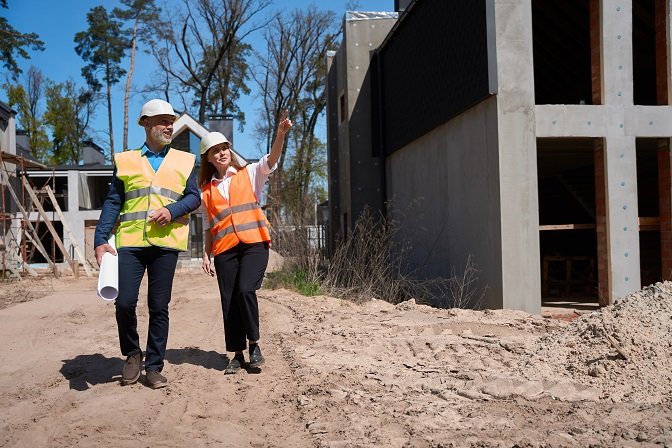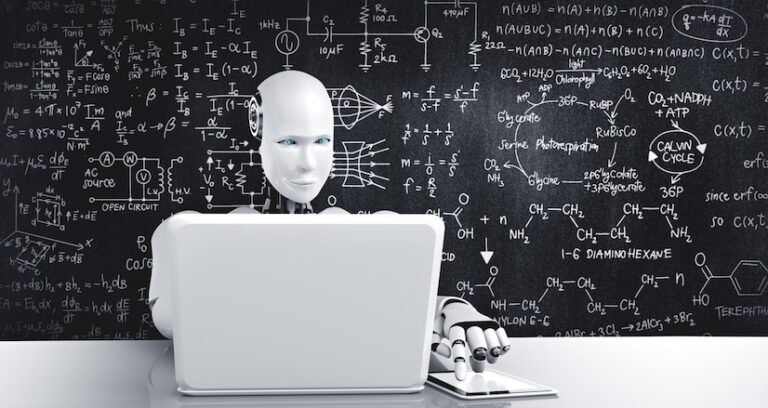
Artificial intelligence (AI) has been transforming industries across the board in recent years, and construction is no exception. One of the most notable areas of impact is within construction estimating services, where AI is streamlining processes, improving accuracy, and helping contractors manage complex projects in a city like New York, known for its fast-paced and intricate construction environment. In this article, we explore how AI is revolutionizing construction estimating services NYC, improving project management, budgeting, and overall efficiency.
The Challenges of Construction Estimating in NYC
New York City presents unique challenges for construction projects due to its dense urban environment, strict building codes, and fluctuating costs for materials and labour. The complexities of high-rise buildings, infrastructure projects, and urban renovations demand highly precise estimating to ensure projects stay on budget and schedule. Traditionally, construction estimating has been a manual and time-consuming process, prone to human error and subjectivity. However, AI is changing that by automating critical tasks and providing more data-driven insights.
AI-Driven Automation in Construction Estimating
AI-powered tools are taking over many manual tasks that estimators used to perform, significantly speeding up the process. Some key areas where AI is automating the construction estimating process include:
- Automated Quantity Takeoffs AI-b ased systems can now analyze blueprints and digital models to calculate the required materials for a project automatically. This process, known as takeoff, has traditionally been one of the most time-consuming parts of the estimating process. AI tools can scan and interpret plans precisely, reducing the time to complete takeoffs from days or weeks to just a few hours.
- Predictive Cost Estimating AI systems are designed to learn from past data. They can analyze historical project data in construction to predict costs more accurately. By examining factors like labour, materials, weather conditions, and geographic locations, AI can create more accurate estimates for projects in NYC, where local costs and regulations can vary greatly.
- Risk Analysis and Management One of the significant benefits of AI is its ability to assess risk. In construction estimating, AI can predict potential cost overruns and scheduling delays by analyzing various data points such as market trends, labour availability, and material price fluctuations. For instance, in NYC, where the price of real estate and materials can change rapidly, AI can give project managers early warnings about risks that could lead to budget or timeline deviations.
Enhanced Accuracy and Precision
The traditional method of manually calculating estimates often leads to discrepancies due to human error, particularly on large-scale projects that require tracking thousands of variables. AI significantly improves the accuracy of construction estimates by using algorithms that factor in multiple variables simultaneously, ensuring precision.
- Data Integration AI allows for the integration of various data sources, such as historical project data, material costs, labour rates, and even weather patterns. This enables estimators to get a comprehensive view of all the factors influencing a construction project, leading to more accurate and realistic estimates.
- Real-Time Updates AI can provide real-time updates on cost fluctuations, material availability, and project changes. In a fast-moving environment like NYC, where delays and price changes are expected, having access to real-time data is invaluable. Estimators and project managers can instantly adjust their plans and budgets based on the latest information.
AI and Building Information Modeling (BIM)
Another major innovation in the construction industry is the integration of AI with Building Information Modeling (BIM). BIM is a digital representation of a building’s physical and functional characteristics. When combined with AI, BIM allows estimators to create highly detailed and accurate models that comprehensively understand a project before construction.
- 3D Model Analysis AI can analyze BIM models to determine the most efficient construction methods, materials needed, and potential cost-saving measures. This is particularly useful in NYC’s skyscraper and infrastructure projects, where construction complexity is high, and any error in planning could lead to substantial financial losses.
- Scenario Testing AI-powered BIM tools can simulate different construction scenarios, allowing estimators to test the impact of various design decisions, material choices, or project timelines. This proactive analysis ensures that all variables are considered, reducing the risk of unexpected costs or delays later in the project.
Increased Efficiency and Productivity
By automating routine tasks, AI frees time for estimators to focus on more complex and strategic aspects of their jobs. In NYC, where construction projects often face tight deadlines, this increased efficiency can be the difference between a project staying on track and one experiencing costly delays.
- Improved Collaboration AI can facilitate better communication and collaboration between different teams involved in a construction project. Whether it’s architects, engineers, or contractors, AI-driven platforms can share up-to-date estimates, cost analyses, and project schedules in real-time, ensuring everyone is on the same page.
- Faster Decision Making The ability to quickly generate accurate estimates allows project managers to make faster decisions, reducing the time needed for approvals and budget reviews. In a city where construction schedules are often pressed for time due to regulations and logistical challenges, faster decision-making leads to more successful project outcomes.
The Future of AI in Construction Estimating
As AI continues to evolve, its role in construction estimating is expected to grow even more sophisticated. Some of the future trends that could impact NYC construction estimating include:
- Machine Learning for Enhanced Predictive Analytics AI will continue to learn from past data, improving its ability to predict future outcomes. This means more accurate cost predictions, better risk assessments, and more efficient resource management for construction projects.
- AI-Powered Drones Drones equipped with AI technology could be used to survey sites, assess project progress, and gather data in real time. This information can then be fed into estimating tools to provide up-to-date cost estimates and identify potential issues before they become significant problems.
- Smart Contracts with Blockchain AI combined with blockchain technology could revolutionize how contracts and payments are handled in construction projects. Smart contracts automatically trigger payments based on project milestones, ensuring contractors are paid on time and reducing the risk of disputes.
Conclusion
AI is revolutionizing the construction industry, and in a dynamic city like New York, it’s proving to be a game-changer for construction estimating services. By automating critical tasks, improving accuracy, and enabling real-time collaboration, AI is helping contractors and project managers stay on budget and schedule while minimizing risks. As technology continues to advance, the construction industry in NYC is set to become even more efficient, precise, and innovative. Embracing AI is more than just an option for construction firms in the city; it’s quickly becoming necessary for staying competitive in a demanding market. Read more






